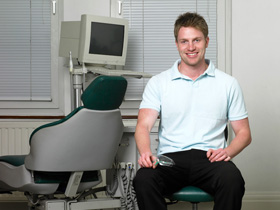Real life stories
Real life volunteering
After finishing college, Cath looked at her career options and decided she'd like to go into advice work. Read on to find out how volunteering in her local Citizens' Advice Bureau (CAB) has led to training, a steep learning curve and lots of job satisfaction!
What interested you about volunteering for the CAB?
After college I was researching careers and decided I'd be suited to information and advice work. It was appealing that it was about empowering people, and helping vulnerable people access services and the benefits they were entitled to.
My local community is also very important to me, so I fancied doing something where I could see the benefits of my work in my area.
I see working at the CAB to be a great way to get some real work experience after being in college. It's also opened my eyes to the real world and some of the problems people face.
What's a typical day like?
Busy! One of my volunteering days is Monday (I do two days a week) and as the office has been closed for two days they're queuing around the block! During the mornings there's a drop-in service and in the afternoons it's appointments.
It's almost impossible to say what a typical day is like because the clients' questions are so varied. The remit of CAB is huge and clients can come in with literally any question, from people wanting legal advice on leaving their partner to what rights they have if they rent a house that has damp. The only constants are you need to be flexible, adaptable and able to think on your feet!
Which skills have you learned?
I would say the main skill I've learned is how to communicate well. The main task in the job is to get to the bottom of what someone's situation is and to get to that you need to listen well and ask the right questions. I've also learned how to empathise and be non-judgemental.
Other skills I've learned are problem solving, when trying to find solutions for clients; researching, when a client had a legal question that I didn't know the answer to; and presentation skills, when I had to represent clients in cases. As I was fresh out of college I had a lot to learn!
As a CAB adviser you must see people in a wide variety of situations. What's the most challenging aspect of the work?
When I first started the temptation was to take everything on. It could be difficult to motivate some clients to take some action for themselves. But I got a lot of support and advice from my managers and after a while I learned to manage my time better, and not to take on too much. I did it with the best of intentions, but to best serve your clients you have to be realistic about what is achievable.
What do you enjoy most about your volunteering?
It's great when I get a result and I improve someone's situation. Quite often people come in when they've hit crisis point, so it's great to be able to ease their fears. For example, once someone came in who was in debt and being harassed by creditors. I managed to freeze the interest on their loan and set up a manageable monthly payment for them. This person was worried sick and off work with stress, so it felt great to help them through this difficult time.
Do you feel your volunteering will help you with future job opportunities?
Definitely! Sometime in the future I'd like to be a welfare rights officer, and you need one to two years of advice experience to get into this, so it's ideal preparation. One of my fellow volunteers recently went for one of these jobs and said they used the experience in their application form and interview. She even said there was an interview test with example client scenarios and she was able to draw upon her voluntary experience.
How did you set up your CAB volunteering?
I read about CAB on the internet and decided to call them up. They said they were looking for volunteers and I asked which my nearest office was.
I filled in the application form, which asked what I could bring to the job and what I thought would be the main issues in the job. Then there was a Criminal Records Bureau check. I passed the interview and then had two weeks' intensive training. The training focused mainly on communication skills, so you could understand exactly what clients' needs were, but there was also a bit about good practice in research.
What would you say to someone who's considering volunteering?
Go for it! But also do your research. Find out exactly what the volunteer organisation does, what your role will be and what commitment they want from you. It's a mistake to think volunteering is a very casual arrangement - most volunteer organisations do very important jobs, so you've got responsibilities and clients that depend on you. You should take it as seriously as a paid job.
Contacting the National Careers Service

Friendly and practical advice helping you take the next step...
Are you the next success story?
We have a number of ways for you to get in touch and we would love to hear about how things are going and what you have been able to achieve!